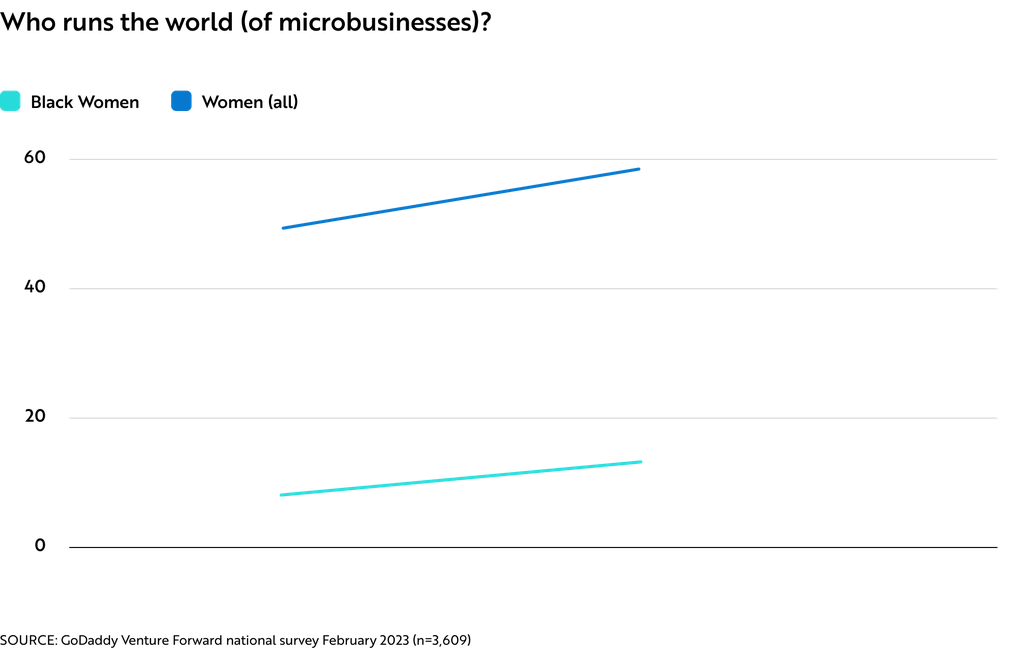Microbusinesses are defined as companies with fewer than 10 employees, a unique domain, and an active website.

The soaring rate at which Black U.S. entrepreneurs start businesses is one of the biggest economic success stories of the post-pandemic era. Venture Forward, a GoDaddy one-of-a-kind research initiative established in 2018 to quantify the impact of online microbusinesses on their local economies, defines microbusiness as businesses that have fewer than ten employees, a unique domain and an active website.
20% of microbusinesses started in 2020 or after are owned by Black entrepreneurs, up 6% since 2019, according to the latest Venture Forward national survey of microbusiness owners.
According to Pew Research Center, the Black majority ownership rate for U.S. businesses of any size is only 3%, making the microbusiness sector one of the most diverse pockets of the economy right now.
The research
GoDaddy’s Venture Forward provides a unique view into the attitudes, demographics, and needs of these entrepreneurs. The initiative’s U.S. national survey started in 2019 and occurs twice a year, typically capturing responses from over 3,500 entrepreneurs per instance to identify and explore trends, as well as deliver insights to advocates of microbusiness entrepreneurs.
GoDaddy analyzes more than 20 million online microbusinesses in the U.S. who have a unique domain and active website. They are often too small or too new to show up in government statistics. While these microbusinesses may be small, their impact on the U.S. economy is outsized . For example, for every one online microbusiness entrepreneur an additional 6.7 jobs are created at the county level.
Go deeper
The fastest-growing ownership segment in the February 2023 survey was Black women, who increased their share from 8% to 13% since 2019. Like most microbusiness owners, they are primarily self-funded. Women, in general, face serious inequities in securing access to capital. Only 2% of all venture capital funding goes to U.S. female-only founder teams, according to PitchBook.
When analyzing the data, the diversification of microbusinesses is most apparent across generational lines. Some 85% of baby boomer owners are white, but only 60% of Generation Z and millennial owners are white.
By the numbers
- Small business owners are surprisingly bullish: 87% of Black microbusiness owners have a positive outlook for their business over the next 6 months, compared to 73% of the entire sample.
- Black business owners are more ambitious than most: Only 21% say they want to remain a solopreneur or stay small compared with 36% for the entire sample. (Unless they’re retired: More than half (53%) of retirees don’t want employees.)
- The most common channel for owners to conduct business? A website. 28% of owners invest in their website first. Setting up a website is a challenge for 1 out of 5 owners.






